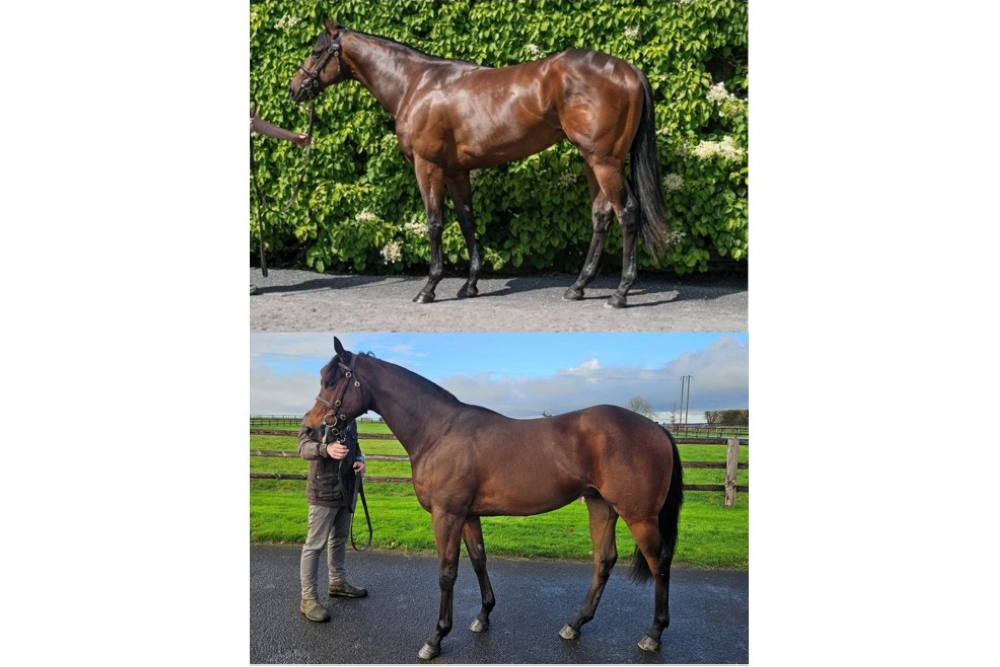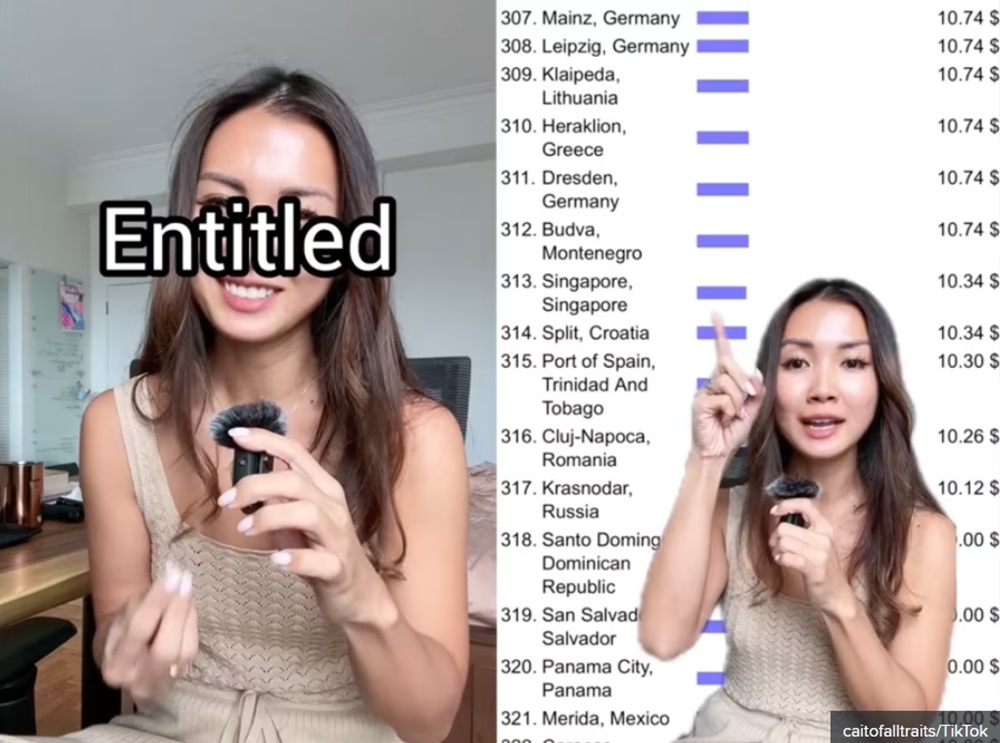SINGAPORE, Nov 10 — It is no secret that the rising cost of living is weighing heavily on the minds of many Singaporeans, with Parliament passing a motion on Tuesday (November 7) to pursue policies that lower cost of living pressures on Singaporeans and their families.
Despite such concerns, freelance actress and host Caitanya Tan took to TikTok yesterday to argue that Singaporeans still have it much better than many others around the world.
Starting off her video with a bold claim that Singaporeans “can be very entitled”, Tan went on to provide several examples to debunk the well-held belief that the Lion City is an expensive place to live in.
She shared that her opinion is based on the many conversations she has had with people that she met during work trips overseas.
“Whenever they get to the subject of their government, everything I want to complain about just seems so ridiculous to say,” Tan said, noting that Singapore consistently ranks highly on global indexes in terms of quality of life, political stability, low crime rates and the “efficiency” of its public services.
Tan then proceeded to compare Singapore’s cost of living to that of other nations to illustrate how “good” the country is.
@caitofalltraits This is why I love Singapore #majulahsingapura #singapore #costofliving original sound - Caitanya Tan
Low personal income tax
In her video, Tan claimed that Singapore has the eighth lowest income tax rate in the world, citing Google search results.
She added that Singapore follows a progressive resident tax rate that starts at 0 per cent, with residents earning a median monthly income of about S$5,888 (RM20,384). Following some calculations, Tan concluded that Singaporeans within this income bracket pay only about 3.8 per cent in income tax a year.
She then compared this to countries with supposedly the highest income tax rates such as Japan, where the rate ranges between five to 45 per cent, not including an additional local inhabitant tax rate of 10 per cent.
“Just by that comparison alone, aren’t we lucky?” Tan asked.
According to statistics by the Ministry of Manpower, the average median income inclusive of employer Central Provident Fund (CPF) contributions in Singapore was S$5,070 per month in 2022. It is unclear where Tan’s figure of S$5,888 was taken from.
Home ownership
Tan then broaches the subject of home ownership in Singapore. Quoting home ownership rates in Thailand, Malaysia, Europe and the United States (US) as examples, Tan highlighted that Singapore tops them all at 89.3 per cent.
This despite Singapore’s high housing prices being one of the factors contributing to its ranking as the most expensive city in the world.
She added that it must be a sign that the Government is “doing something right” by emphasising the importance of savings and “forcing” its citizens to save through CPF.
Public transport and car ownership
On the topic of public transportation, Tan relayed that she has heard many tourists praise Singapore’s system for being “so well done”.
“To be able to travel anywhere around Singapore for a maximum of S$2.50 per trip is a total privilege that we take for granted,” she said.
Tan added that owning cars is also not necessary due to the fact that taxis and private-hire cars are “so much more affordable” than in many other developed cities. Tan then recounted a time where she paid US$80 (S$108.50) for just a 20-minute taxi ride in Seattle in the US.
“In Singapore, taxis and Grabs cost less than S$30 during non-peak hours,” she emphasised.
Tan also supported the need for high Certificate of Entitlement (COE) prices in order to prevent congestion and pollution on the roads.
Price of food
Finally, Tan touched on the topic of rising food prices.
Sharing that she always requests for a per diem allowance of S$300 for overseas work trips, Tan claims that the amount does not always stretch far in some countries.
Citing crowd-sourced online database Numbeo, Tan pointed out that cities in Switzerland ranked multiple times within the top 15 positions of a list on the average costs of meals. A meal in Zug, for example, would set a person back about US$33 (it is unclear what currency the list is based on).
Tan goes on to share that she paid an average of €30 (RM150) per meal during a recent trip to Switzerland.
On the same list, Singapore took up 313th spot with an average meal costing US$10.34. Tan noted that some Singaporean meals, such as cai png (economical rice), egg prata or nasi lemak may cost even lesser than that.
“If that’s not lucky enough, at the recent Parliamentary discussions, (the Government) is still thinking of ways to ease our cost of living with the GST voucher scheme, Assurance Package, U-Save utility rebates,” she added.
Tan then said that she feels like she is “bragging” every time she shares to people outside the country what the Singapore Government does.
Acknowledging that there is no such thing as a utopia, Tan ended her video by saying: “Sure, there’s always going to be a place that’s better than here depending on what you’re looking for in life.
“But in the grand scheme of things, I really think that Singapore is super well-run. I personally am very proud to be Singaporean, more so after speaking to so many people around the world. And I hope through this video you’ll understand that we are really lucky to be born Singaporean.”
Tan’s TikTok video has garnered over 123,000 views and close to 6,000 comments as of Friday.
Several online users agreed with the points raised, acknowledging that Singapore is a great place to live.
One user commented: “You nailed it. You people are blessed to be born in Singapore. People who don’t have these in their life will know the value.”
Another user wrote: “Generally agree with you! Honestly it is easier for those who have lived overseas to appreciate what we have in Singapore.”
Someone else said: “Preach!! The grass is not always (and in our case, almost never) greener on the other side. Love Singapore!”
Some agreed that most Singaporeans have their basic needs fulfilled.
As one person remarked: “It’s really wants versus needs. We definitely have all we need here! But people confuse the two and blame the Government.”
However, some TikTok users challenged some of Tan’s claims.
A netizen questioned: “In what sense does the concept of an HDB 99-year lease translate into home ownership?”
Another person similarly asked: “Does a 99-year lease equate to ownership? Sounds to me like a long-term rental paid by retirement funds.”
Other online users raised other issues Singaporeans grapple with, such as the cost of healthcare and the number of hours worked in a week.
As this user wrote: “There is no perfect country but Singapore is considered one of the best. But service? Healthcare? Needs a bit of work.” — TODAY





















